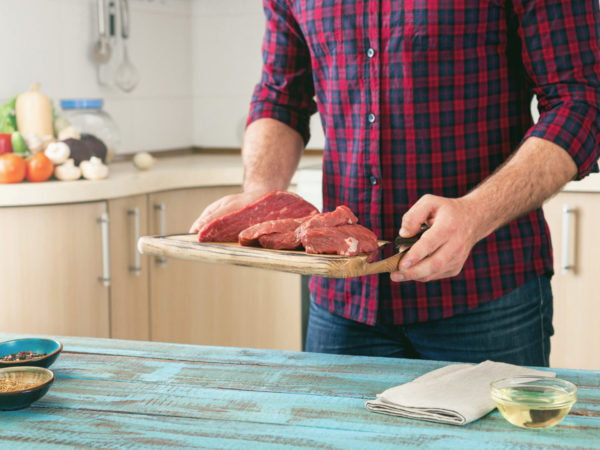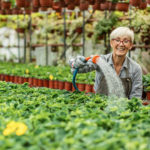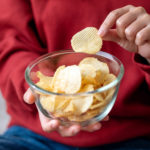Cooking Habits That Can Make You Sick

Considering that foodborne organisms infect some 48 million Americans each year, you might think we would be more careful when cooking. But a new U.S. Department of Agriculture study shows that many people have bad kitchen habits that are likely to spread bacteria that could sicken family members. Example: Study participants unwittingly dispersed bacteria from raw poultry to the test kitchen surfaces and then to other food items. About half of the time they also contaminated the spice containers they were using to prepare burgers. They disseminated bacteria to refrigerator handles 11 percent of the time and to salads five percent of the time. The study results also showed that only 34 percent of participants used a food thermometer to make sure burgers were properly cooked. Nearly half of those who did use food thermometers didn’t cook the burgers to the safe minimum internal temperatures. Perhaps most alarming, the study showed that participants didn’t wash their hands correctly 97 percent of the time – that means washing with soap and water for at least 20 seconds and drying with a clean towel. If you’re going to be grilling this summer, the USDA recommends using a food thermometer to be sure meat and poultry are cooked to the recommended safe internal temperatures: beef, pork, lamb and veal, 145 degrees Fahrenheit; burgers, 160 degrees; poultry 165 degrees.
My take? Here’s what I would add to the USDA advice: To avoid contamination from bacteria, including dangerous strains of E. coli, always prepare meat separately, on separate surfaces, and cook it thoroughly before consuming it. Never prepare other food items with knives or other utensils used on raw meat before cleaning them. After working with raw meat or other animal foods, be sure to carefully clean all cutting surfaces and utensils to avoid transferring bacteria from one kind of food to another, and wash your hands thoroughly with hot water.
To avoid the risks of infection with campylobacter, salmonella or E. coli, chicken and turkey need to be handled carefully during preparation: Cut raw meat on separate surfaces, wash utensils carefully, and cook poultry thoroughly. Try to source organic produce whenever possible. If not, be sure to peel non-organic fruits and vegetables that can be peeled and to wash the rest before eating. Use a small amount of diluted dish detergent and a vegetable scrubber, followed by a warm water rinse to help remove chemical residues and any food-grade wax.
Source:
U.S. Department of Agriculture, “Food Safety Consumer Research Project: Meal Preparation Experiment Related to Thermometer Use Executive Summary.” May 2018, fsis.usda.gov/wps/wcm/connect/1fe5960e-c1d5-4bea-bccc-20b07fbfde50/Observational-Study-Addendum.pdf?MOD=AJPERES
Also in this week’s bulletin:











